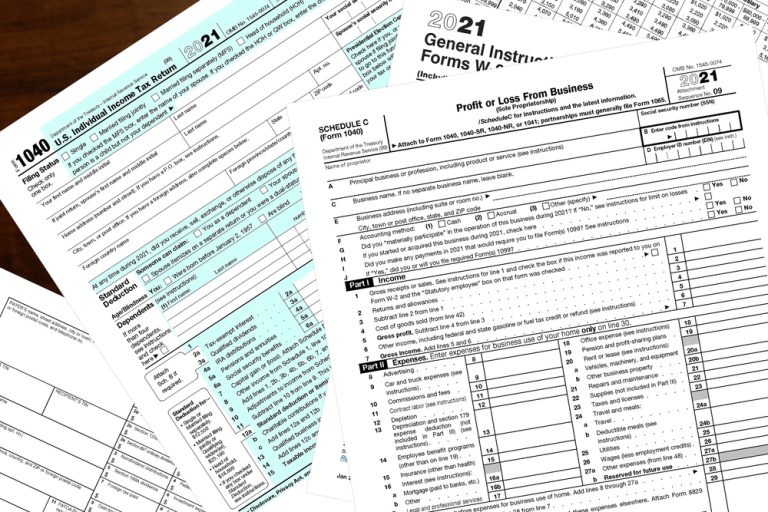Four Things Insurance Companies Should Know About Florida House Bill 301
Four Things Insurance Companies Should Know About Florida House Bill 301
Florida House Bill 301—approved by the Florida Legislature in the 2019 Regular Session and signed by the Governor—addressed a number of different issues relating to insurance in Florida. This article discusses four of those issues, all of which should be of importance to insurance companies doing business in Florida.
1) Liability Insurance – Right of Contribution for Defense Costs
In passing Florida House Bill 301, the legislature has effectively overruled Argonaut Ins. Co. v. Maryland Cas. Co., 372 So. 2d 960 (Fla. 3d DCA 1979) and its progeny, which held that an insurer could not assert a claim for contribution against another insurer that (1) had a duty to defend their mutual insured and (2) failed to contribute to the defense. The Third District Court of Appeal in Argonaut reasoned that “the duty of each insurer to defend its insured is personal and does not inure to the benefit of another insurer.”
The Final Bill Analysis of HB 301 noted that under the Argonaut standard, “where multiple insurers have a duty to defend, a waiting game may ensue prior to one insurer taking on the defense of the matter and beginning to incur defense costs.” HB 301 addresses that potential “waiting game” by creating a new section, Fla. Stat. § 624.1055, that provides a right of contribution among liability insurers for defense costs when multiple insurers have a duty to defend the same insured. The statute provides, in part:
A liability insurer who owes a duty to defend an insured and who defends the insured against a claim, suit, or other action has a right of contribution for defense costs against any other liability insurer who owes a duty to defend the insured against the same claim, suit, or other action, provided that contribution may not be sought from any liability insurer for defense costs that are incurred before the liability insurer’s receipt of notice of the claim, suit, or other action.
Fla. Stat. § 624.1055.
HB 301 contains two caveats relative to this new right of contribution. First, while this section generally applies to “liability insurance policies,” it specifically excludes application of this section to motor vehicle liability insurance or medical professional liability insurance. Second, pursuant to Section 17, Ch. 2019-108, this section will apply “to any claim, suit, or other action initiated on or after January 1, 2020.”
2) Proof of Mailing – Asserting Coverage Defenses in a Reservation of Rights Letter
Florida’s Claims Administration Statute, Fla. Stat. § 627.426, provides, in part, that a liability insurer may not assert a “coverage defense” unless notice is given to the insured “within 30 days after the liability insurer knew or should have known of the coverage defense.” Before HB 301 was passed, the statute provided that notice had to be given to the insured by “registered or certified mail.”
HB 301 amends the notice requirement under Fla. Stat. § 627.426 to provide that notice shall be given “by United States postal proof of mailing, registered or certified mail, or other mailing using the Intelligent Mail barcode or other similar tracking method used or approved by the United States Postal Service.” According to the USPS, “the Intelligent Mail barcode is a 65-bar Postal Service™ barcode used to sort and track letters and flats.”[1] In addition, “the Intelligent Mail® barcode (IMb) is used to sort and track letters, cards and flats and offers greater versatility by allowing many services to be requested and embedded within one barcode.”[2]
While there is case law excusing an insurer’s compliance with this statute where the insured received actual notice on a timely basis, see Phoenix Ins. Co. v. McCormick, 542 So. 2d 1030 (Fla. 2d DCA 1989), given the specific language added to this section, insurers should ensure that its reservation of rights letters are timely issued to the named insured by one of the methods prescribed in the statute.
3) Civil Remedies Against Insurers
HB 301 contains two revisions to Florida’s Civil Remedy statute—Fla. Stat. § 624.155—which was enacted in 1982 to create a statutory bad faith cause of action against an insurance company.
First, while an insured must still provide facts and other information with specificity, HB 301 removed from the Civil Remedy statute the almost-never-used provision that permitted the Department of Financial Services to “return any notice that does not provide the specific information required by this section.” According to the Final Bill Analysis, as a result of this change, “if an insurer objects to a civil remedy notice because it lacks specificity, the insurer may challenge the sufficiency of the notice in court instead of through DFS.”
Second, HB 301 added a new subsection to Fla. Stat. § 624.155, which now provides that an insured may not file a Civil Remedy Notice “within 60 days after appraisal is invoked by any party in a residential property insurance claim.” This new subsection will be helpful to residential property insurers because it precludes an insured from filing a Civil Remedy Notice shortly after an insurer’s invocation of appraisal. In such a situation the insurer risked facing a bad faith lawsuit if the appraisal was not finalized and any monies owed were not in the insured’s possession before the expiration of the sixty day cure period.
By requiring an insured to wait 60 days before filing a Civil Remedy Notice after appraisal has been invoked, an insurer has more time to allow the appraisal process to be completed and for any payment owed to be issued to the insured. According to the Final Bill Analysis, by resolving disputed claims before a Civil Remedy Notice can be filed, insurers may see fewer statutory bad faith claims, which could reduce insurance costs and, therefore, rates for Florida’s insureds.
4) Property Insurance Claim Mediation
Fla. Stat. § 627.7015 provides an alternative procedure for resolving disputed claims under personal lines and commercial residential policies “before commencing the appraisal process, or before commencing litigation.”[3] Essentially, this section sets forth “a nonadversarial alternative dispute resolution procedure for a mediated claim resolution conference” between insureds and their insurers.
Before HB 301 was passed, Fla. Stat. § 627.7015(2) required insurers to notify its insureds “of its right to participate in the mediation program under this section” at the time a claim was made by the insured. However, HB 301 amends that section to add that an insurer may give notice of the mediation program “at the time of issuance and renewal of a policy or at the time a first-party claim” is made. (emphasis added)
This amendment to Fla. Stat. § 627.7015(2) should be helpful to insurers issuing personal lines and commercial residential policies and which seek to resolve disputed claims pursuant to appraisal. The Third District Court of Appeal recently reinforced the principle that an insurer can waive its right to appraisal by not providing an insured with notice pursuant to § 627.7015(2) of the right to mediate after a claim is made. See Kennedy v. First Protective Ins. Co., 271 So. 3d 106 (Fla. 3d DCA 2019). Under the new version of this section, an insurer can now comply with § 627.7015(2) by providing notice of the right to mediate “at the time of issuance and renewal of a policy.”
[1] https://postalpro.usps.com/mailing/intelligent-mail-barcode (last accessed on September 23, 2019)
[2] Id.
[3] “This section does not apply to commercial coverages, to private passenger motor vehicle insurance coverages, or to disputes relating to liability coverages in policies of property insurance.” Fla. Stat. § 627.7015(1).








